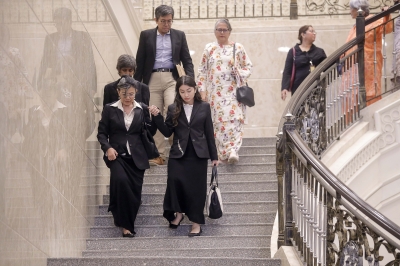FEBRUARY 12 — In “A party in civil action must have cause of action” I explained that when a party wishes to commence a civil action or civil suit, his solicitor must consider a fundamental matter: That the party has a cause of action.
The definition of “cause of action” by Lord Diplock in Letang v Cooper [1965] identifies five elements of a cause of action:
(a) factual situation;
(b) person to sue — plaintiff;
Advertisement
(c) court having the necessary jurisdiction;
(d) remedy that the court can grant; and
(e) person to be sued — defendant.
Advertisement
With regard to the plaintiff, it is additionally said that he must have locus standi. The Latin phrase locus standi or ‘standing in courts’ indicates that a person is allowed by the judges to appear and be heard in a legal proceeding. It is a procedural barrier erected by the judges to prevent the court’s time and public money from being wasted by multiplicity of frivolous and vexatious litigations brought by busybodies whose actions are bound to fail in limine and also to prevent abuse of the legal process.
So, a party cannot be a busybody. If Azrul Mohd Khalib’s “Like Nik Elin and Yasmin, we should all be busybodies” uggests that a party in a civil action can be a busybody, then it is wrong.
Nik Elin Zurina Nik Abdul Rashid and her daughter Yasmin were not busybodies. They were granted leave under Article 4(4) of the Federal Constitution to proceed to the Federal Court for declarations that provisions in the Kelantan Syariah Criminal Code Enactment (1) 2019 were invalid on the ground mentioned in Article 4(3), i.e. the Kelantan State Legislature had no power to make the provisions.
The sole dissenting judgment delivered by the learned Chief Judge of Sabah and Sarawak Abdul Rahman Sebli referred to the reasoning of the single Judge of the Federal Court Vernon Ong for granting leave under Article 4(4) where the learned Federal Court judge said:
“I am of the opinion that the Applicants have made out an arguable case which warrants the granting of leave for the matter to be fully ventilated before the Federal Court.”
There are various approaches which a court may adopt in deciding the question of locus standi. One approach is to ask whether the plaintiff has ‘a cause of action’. Another approach is to determine whether the plaintiff can establish a ‘right’ which the court may declare. Yet another approach is to require the plaintiff to demonstrate ‘a special injury’ resulting from the subject matter of the declaration. A fourth approach requires the plaintiff to have an ‘interest’ in the subject matter of the declaration to be litigated. A final approach leaves the question of standing to be determined by the court in the exercise of its discretion. (See the judgment of Abdul Hamid CJ (Malaya)(as he then was) in Karpal Singh v Sultan of Selangor [1988] 1 MLJ 64)
The final approach may be the one that may have justified the grant of leave to Nik Elin and Yasmin. Even so, Vernon Ong FCJ required that they had an arguable case.
On the grant or refusal of leave, one may refer to the judgment of Lord Donaldson MR in The Iran Nabuvat [1990] 3 All ER 9, where the President of the Civil Division of the Court of Appeal said:
“The grant or refusal of leave to come to [court] is a very sensitive power which has to be exercised by the court. This bias must always be towards allowing the … court to consider the complaints of the dissatisfied litigant.”
On whether there is an arguable case in the particular circumstances of case, Lord Donaldson said:
“If a Lord Justice of Appeal, having studied the matter on paper, is satisfied that there is an arguable case and grants leave, I think it would require some very cogent reasons for disagreeing with his decision, and it certainly would not be a reason that the court which was asked to reconsider his decision did not itself think that the matter was arguable.”
The above judgment was referred to with approval by Chief Justice Zaki Azmi in Terengganu Forest Products Sdn Bhd v Cosco Container Lines Co Ltd & Anor and other applications [2011] 1 MLJ 25.
It has been said that judges have a constitutional obligation to act as per their oath of office to preserve, protect and defend the constitution. (See Hamid Sultan, Federal Constitution, Oath of Office, Rule of Law and Judicial Review with Public and Private International Law, Janab (M) Sdn Bhd 2021)
If the applicants have an arguable case for the constitutional challenge, shouldn’t the Federal Court judge grant the leave as per his oath of office to preserve, protect and defend the Federal Constitution?
With respect, Nik Elin and Yasmin were not busybodies. They had an arguable case. Vernon Ong FCJ respectfully was right to grant them leave as per his oath of office to preserve, protect and defend the Federal Constitution.
*This is the personal opinion of the writer or publication and does not necessarily represent the views of Malay Mail.







